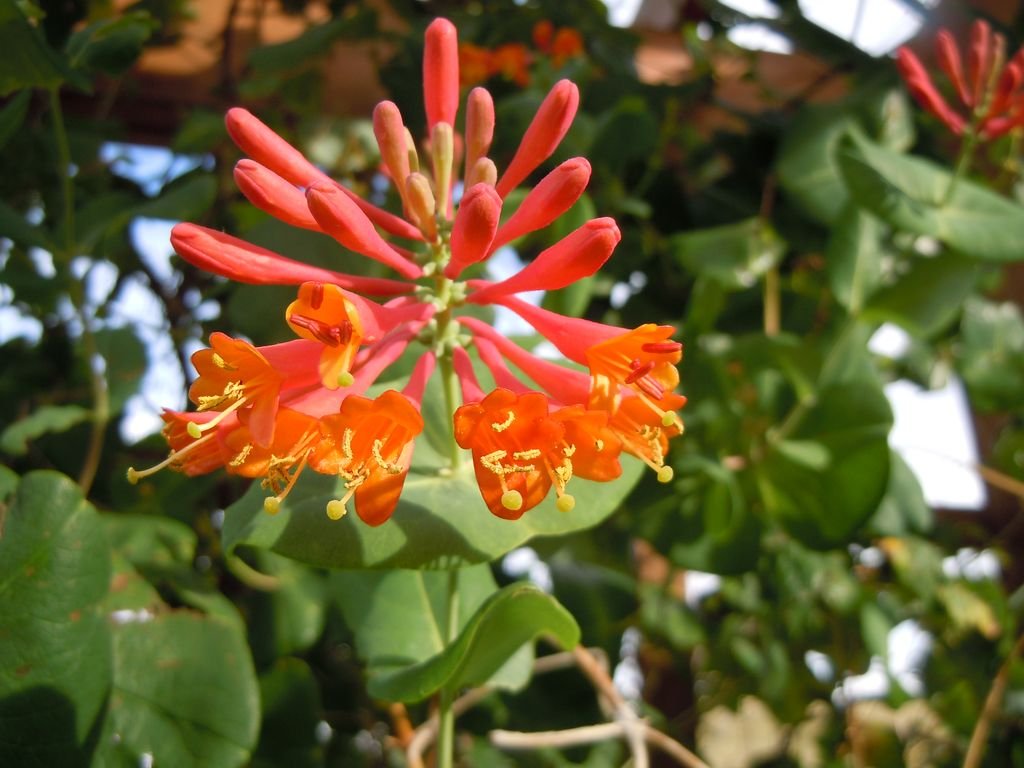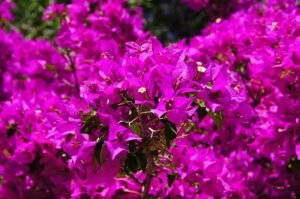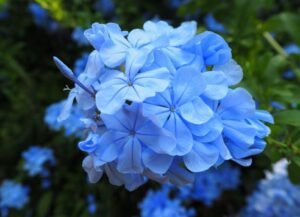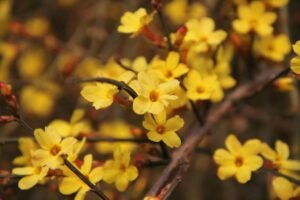Honeysuckle ‘Dropmore Scarlet’ (Lonicera × brownii ‘Dropmore Scarlet’) is a climber that can grow 3m – 8m tall and 50cm – 1.5m wide. In this growing guide we’ll learn the cultivation details and how to plant Honeysuckle ‘Dropmore Scarlet’ (Lonicera × brownii ‘Dropmore Scarlet’).
This plant is commonly known as honeysuckle ‘Dropmore Scarlet’.
This is a semi-evergreen plant that takes 5-10 years to reach full maturity.
In this article
Plant profile
Common name: honeysuckle ‘Dropmore Scarlet’
Scientific name: Lonicera × brownii ‘Dropmore Scarlet’
Plant type: Climbers
Habit: Climbing
Height: 3m – 8m
Spread: 50cm – 1.5m
Foliage: Semi-evergreen
Sunlight: Full Sun, Partial shade
Soil: Chalk, Clay, Loam, Sand
Moisture: Moist but well drained
Garden type: City & Courtyard Gardens, Coastal, Informal Garden
Planting type: Flower borders and bedding, Wall-side Borders
Seasonal colors
| Season | Stem | Foliage | Flower | Fruit |
|---|---|---|---|---|
| Spring | ||||
| Summer | ||||
| Autumn | ||||
| Winter |
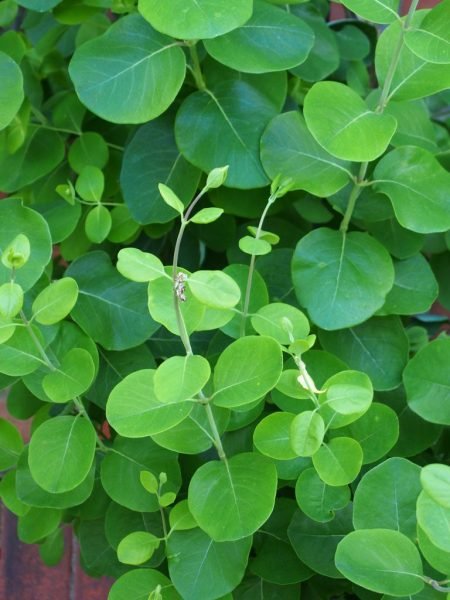
How to plant Honeysuckle ‘Dropmore Scarlet’ (Lonicera × brownii ‘Dropmore Scarlet’) – Agnieszka Kwiecień, Nova, CC BY-SA 4.0, via Wikimedia Commons
Versatile and decorative, climbing plants can make great contributions to creative garden designs.
Their rambunctious branches complement other plants and adorn structures with flowers and foliage.
Climbers are often used as a backdrop for other plants or are grown on pergolas to provide shade and height for the garden.
You can also create focal points by interweaving them through trees, pyramids and pillars, or train them on a trellis to form partitions between different areas of the garden.
[yarpp template=”yarpp-template-genus” require_tax='{“genus”: 1}’]
How to plant
In this section we will learn how to plant Honeysuckle ‘Dropmore Scarlet’ (Lonicera × brownii ‘Dropmore Scarlet’), know its needs in terms of soil, watering and sun exposure.
Soil
Honeysuckle ‘Dropmore Scarlet’ (Lonicera × brownii ‘Dropmore Scarlet’) is a plant that adapts to all types of soils, chalk, clay, loam or sand.
-
The chalky soil is pale and contains chunks of calcium-rich rock. It is a fertile and well-draining soil, almost always alkaline.
-
Clay soil is composed of more than 25 percent clay particles. These particles have a high moisture holding capacity and the soil is heavy to dig and can be waterlogged in winter (dry in summer).
-
The loam soil is dark, rich in organic matter but balanced in minerals. It offers the best of all worlds, retaining enough water for the plants, but allowing excess moisture to drain away. This is the most desired type of garden soil, perfect for most plants.
-
Sandy soil is light, porous and very easy to drain. It is a soil poor in organic matter and nutrients. It is composed of relatively large mineral particles that allow water to drain quickly.
It is not very sensitive to soil acidity or alkalinity and grows well in soils with pH acid, alkaline or neutral.
Regarding drainage, Lonicera × brownii ‘Dropmore Scarlet’ likes to grow in moist but well drained soil.
Sunlight
Honeysuckle ‘Dropmore Scarlet’ (Lonicera × brownii ‘Dropmore Scarlet’) is a plant that should be grown in full sun or partial shade positions.
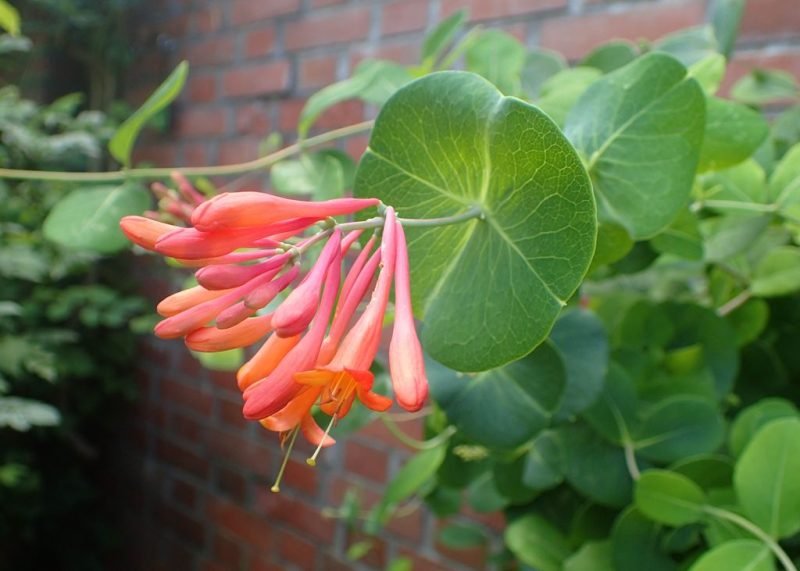
Cultivation profiles – Growing Honeysuckle ‘Dropmore Scarlet’ (Lonicera × brownii ‘Dropmore Scarlet’) – Krzysztof Ziarnek, Kenraiz, CC BY-SA 4.0, via Wikimedia Commons
